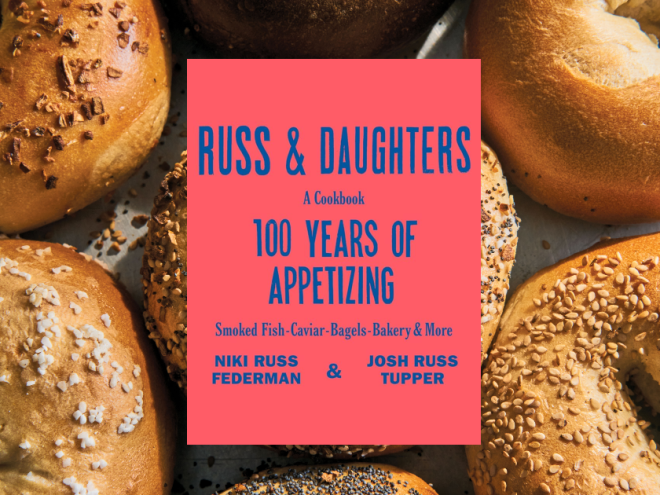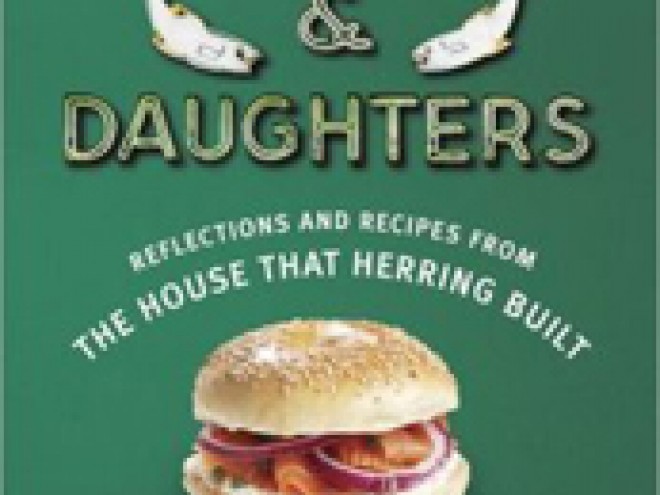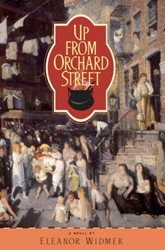“To the generations of families — ours and yours — who have sustained Russ & Daughters”: these words, on the dedication page of Russ & Daughters: 100 Years of Appetizing, capture the essence of a volume that is nominally a cookbook, but can just as easily be considered a culinary and cultural history. Written and compiled by the establishment’s fourth-generation owners — the great-grandchildren of original founder Joel Russ — the book offers hundreds of recipes, photographs, family anecdotes, and forays into the historical origins of appetizing store staples. The authors also reflect on the shifting Lower East Side neighborhood, contributing to a rich narrative of Jewish and immigrant gastronomic heritage in New York City.
The opening chapter recounts Joel Russ’s emigration to New York from Galicia in the early twentieth century. The authors incorporate archival photographs and newspaper clippings, anchoring the subsequent recipes in the family’s immigrant story.
The cookbook’s recipes are divided into sections corresponding to key milestones in Russ & Daughters’ evolution. “The Store” features recipes from the original Houston Street location, providing insight into the approach that first brought the Russ family renown. “The Café” presents dishes from the 2014 expansion, reflecting a modernized ethos that still prioritizes classic flavors. “The Bakery” showcases recipes from the 18,000-square-foot hub they built in the Brooklyn Navy Yard in 2018, which is responsible for all shipments.
Within each section, recipes are organized in various ways: around a shared ingredient (caviar), a specific dish (bagel sandwich), or a particular meal (Passover seder). Each recipe includes a brief explanation of the dish’s ethnic origins and how the Russ & Daughters family sought to honor traditions while integrating new ingredients and innovative cooking techniques.
Interwoven within the recipes are insights into Jewish food knowledge and kashrut practices, along with explanations of Yiddish terms now common in American culture. For example, the authors clarify that lox, the common term for smoked salmon, is the Americanized spelling of the Yiddish word laks. These features make the book accessible to diverse audiences, from Jewish readers who connect personally to the cuisine to non-Jewish readers who want to learn more about Jewish culture through food.
Beyond the delicious recipes, Russ & Daughters: 100 Years of Appetizing highlights the store’s broader significance as a cultural touchstone in New York. While the volume can easily be gleaned for its recipes alone, it also serves as a richly informative archive, reminding us that food is both sustenance and identity.





